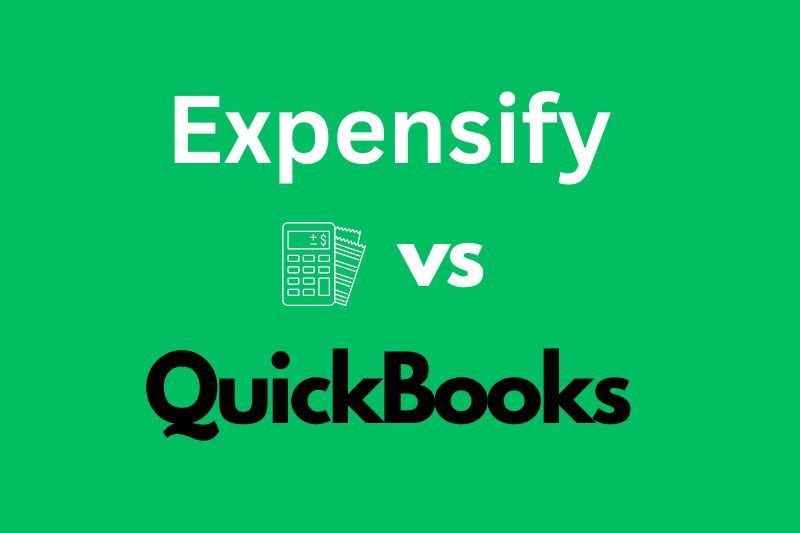Choosing an accounting software package, whichever is appropriate for a particular business, is a most crucial decision. With endless choices out there, you may feel paralyzed. The right software will streamline your financial operations, saving you time and allowing you to make educated decisions. But the wrong choice could take up your time and resources with inefficiencies and errors. Here are the top 10 features to consider in accounting software for your business.
1. User-Friendly Interface
Accounting software should be simple but efficient, especially in a small business scenario where staff might be limited or where no one single person is dedicated to accounting activities. A solution should therefore have dashboards that are not cluttered, menus that are easy to learn, and tools that make invoicing, expense tracking, and reporting a piece of cake.
A good experience reduces learning efforts, minimizes errors, and allows you to focus on building your business rather than fighting with the software. Ease of use can also drive adoption with employees so they can take advantage of the software effectively from day one.
2. Comprehensive Accounting Tool
The prime functions offered by accounting software constitute the most important features. The essential tools needed by any business – from tracking incomes and expenses, invoicing to inventory management – are absolutely the minimum. Extra features aimed at easing out bookkeeping, like automatic receipt scanning, bank reconciliation, and financial forecasting, can come in very handy. Payroll management can be held under a separate system, such as QuickBooks Payroll, which reduces the whole job by a few miles.
When comparing helpful alternatives, such as Square Payroll vs QuickBooks, see if the features included allow you to handle finances effectively. These features taken as a whole give you the possibility of solving all of your accounting work without jumping from one program to another. These jumps often waste time and increase the chances of committing errors due to manual input or inconsistency among different systems.
3. Integration
Integration is crucial for streamlining workflows and eliminating the requirement for manual data entry. Contemporary accounting systems should easily integrate with bank accounts, payment gateways, e-commerce sites, and other business tools. When comparing a solution, look at its integration capabilities to your systems to minimize disruptions. You save time and minimize errors through centralized financial management.
4. Security Features
Any business wants to protect its sensitive financial data, and accounting software would be able to offer bank-grade encryption, multi-factor authentication, and audit trails. All would work to ensure unauthorized access. For example, users trust QuickBooks because they protect the most private pieces of their information. No matter your choice between Expensify and QuickBooks, one major point to note is heavy security measures, without compromises.
Secure systems guarantee that the data is secured against cyber threats, for lesser financial damage if its reputation is impinged. Look for software that conforms to industry standards and regulations like GDPR or PCI DSS; it is one of the ways to ensure that your business has complied with mandated legal obligations.
5. Scalability
With the growth of your business, there will inevitably be changes in your accounting requirements. Scalable software accommodates increased complexity without requiring users to overhaul their existing platform. Features such as multi-currency support, in-depth reporting, and international compliance are necessary for future growth.
For this purpose, QuickBooks Online has remarkable scalability that can accommodate your business in its long-term expansion plans. While doing a comparison between tools like Square Payroll vs QuickBooks, check out how well either can be scaled as per your business. This is particularly useful for startups and small businesses expecting rapid growth or expansion into new markets.
6. Expense Management
An essential aspect of keeping financial records accurate and under control is effective expense tracking. Expense reporting has been simplified by Expensify with receipt scanning, automatic categorization, and reimbursement automation. QuickBooks, however, offers a more complete financial management solution, which is just one aspect of its wide-ranging tools.
For firms making a choice between Expensify vs QuickBooks, it is the difference whether you are looking for specialized tools for expense management or one well-rounded accounting solution. Good expense management literally keeps you in the loop on spends, helps you find savings opportunities, and allows you to comply with tax regulations. Furthermore, it speeds up employee reimbursement processes, improving overall efficiency and saving costs in administrative work.
7. Payroll Processing
Payroll features are essential components of a business managing the payroll of its employees. QuickBooks Payroll offers payroll reports, tax calculation, and simple integration with the accounting suite. On the contrary, Square Payroll charge direct deposit fees to save businesses with a high number of contractors from incurring costs.
When analyzing Square Payroll vs. QuickBooks, consider the payroll requirement and choose it according to your business structure. Efficient payroll processing ensures timely payments, reduces the burden of administration, and most of all will keep your employees happy.
8. Customizable Reporting
Customizable reporting gives you a lot of information regarding how your business is performing financially. Look for software that helps you create reports as defined by your unique needs, be it cash flow reports, profit and loss statements, or budget versus actual reports. Seeing the KPIs or through graphs and charts on the dashboards can make the interpretations of the users more understandable. The platforms provide extensive reporting functionalities suitable for different industries.
Customizable reporting has the potential to help you track progress, identify trends, and plan for the future with confidence. Also, the financial performance can be communicated by this to the stakeholders like investors or board members in a clear and professional way. Exploring best Bill.com alternatives may also reveal software with equally robust reporting capabilities.
9. Tax Compliance
Navigating through tax laws can be a grueling event, and perhaps one of the best accounting software would ease such rigorous duties. Check for features that automate tax calculations and that makes rolled forms as well as file for compliance with state tax laws and federal requirements. Tax compliance features help save time, repetition as well as costly penalties.
10. Mobile Access
Mobile accessibility is something that should be a feature of any accounting software at this time. If it has a mobile application, you can access and manage finances anywhere and everywhere on uploading receipts, sending invoices, and tracking payments. There are applications where workers can take pictures of receipts to upload and is provided with tools by QuickBooks for invoice and expense tracking anywhere.
Mobile access is a real-time productivity increase, keeping up with your finances, which is particularly useful for traveling business owners or remote teams. Collectively, it allows employees to report expenses or track time while out, although this probably increases overall efficiency and accuracy.
The Final Thoughts
Choosing the right accounting software will be one of the strategies that will influence your efficiency in conducting your business. Therefore, you should focus on such factors as user friendliness, completeness of the tools inside the software, integration capacity, and high security levels to source an appropriate solution that would serve the needs you target. When you have everything in place concerning accounting software, it is high time to stir your financial movement and make decisions worthy of spending your time on growing your business.





















